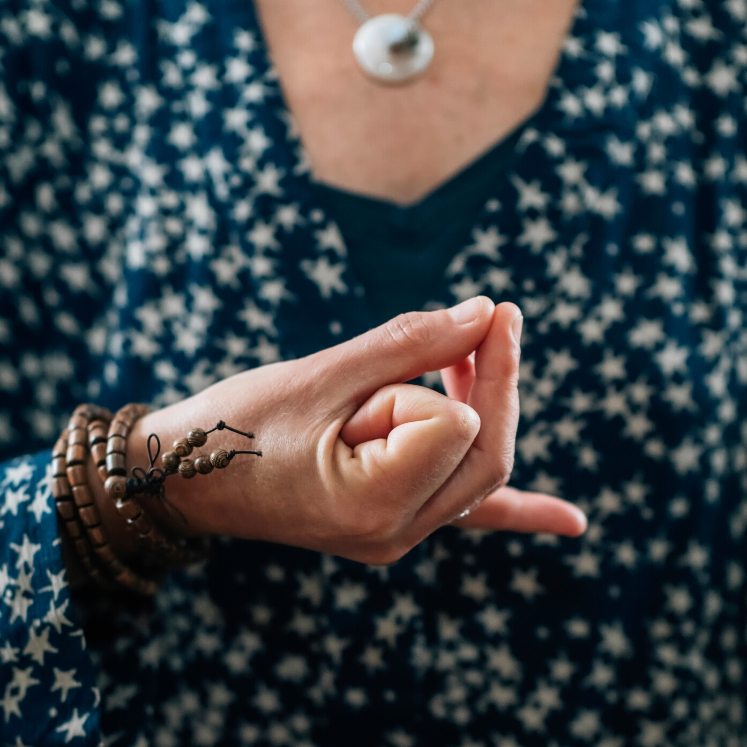
The heart is the center of energies which nourishes the whole body. Imagine, if this center itself gets obstructed by ailments, what will happen!
The simple practice of yoga mudras can keep you away from many heart diseases like high blood pressure, arrhythmia, stroke, and even heart attack.
What Research Says
The effect of yoga mudras on heart patients has been proven effective. A research study has suggested, after practicing mudra, there comes a substantial reduction in systolic, diastolic blood pressure, heart rate, and blood viscosity. Moreover, it’s observed in this research, mudra practice increases brain tissue blood supply and memory index.
| Variable | Before Yogic Hand Mudra | After 15 minutes of yogic hand mudra | P Value |
| Heart Rate (bts/min) | 71.5±15.08 | 68±12.74 | <0.001 |
| SBP (mmHg) | 134.57±14.79 | 127.71±11.41 | <0.001 |
| DBP (mmHg) | 84.5±7.94 | 80.21±5.69 | <0.01 |
Even, a yoga mudra known as apana vayu mudra has called an emergency tool for primary supportive medical care in case of a heart attack till hospitalization. They referred it ‘V Mudra – a possible victory over death’.
Hridya Mudra: Mudra to Relieve Heart Attacks
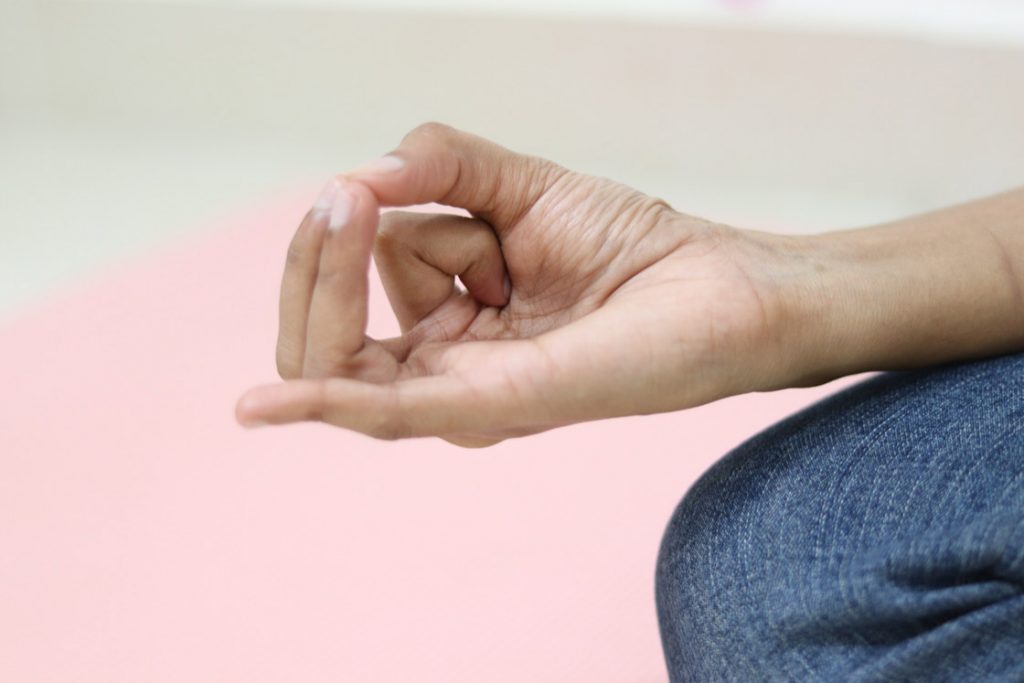
Hridya mudra is another name of Apana Vayu Mudra. This hand gesture is said to have the power to cure any malady of heart and even could revive a dead person (mrit sanjeevani). Practicing this mudra regularly relieves common symptoms of heart attack.
To do Hridya Mudra,
- Sit in any comfortable pose.
- Curl your index finger of both hands to touch the root of the thumb.
- The tip of the thumb touches the tip of the middle and ring finger.
- Rest little finger extended.
Benefits of Hridya Mudra
- Relieves pain and tightness in the chest
- Improves vitality of heart by increasing Prana flow
- Removes emotional knots of the heart
- Also, acidity or heartburn issues get vanished by this mudra
2. Abhaya Hridaya Mudra: Mudra for Fearless Heart
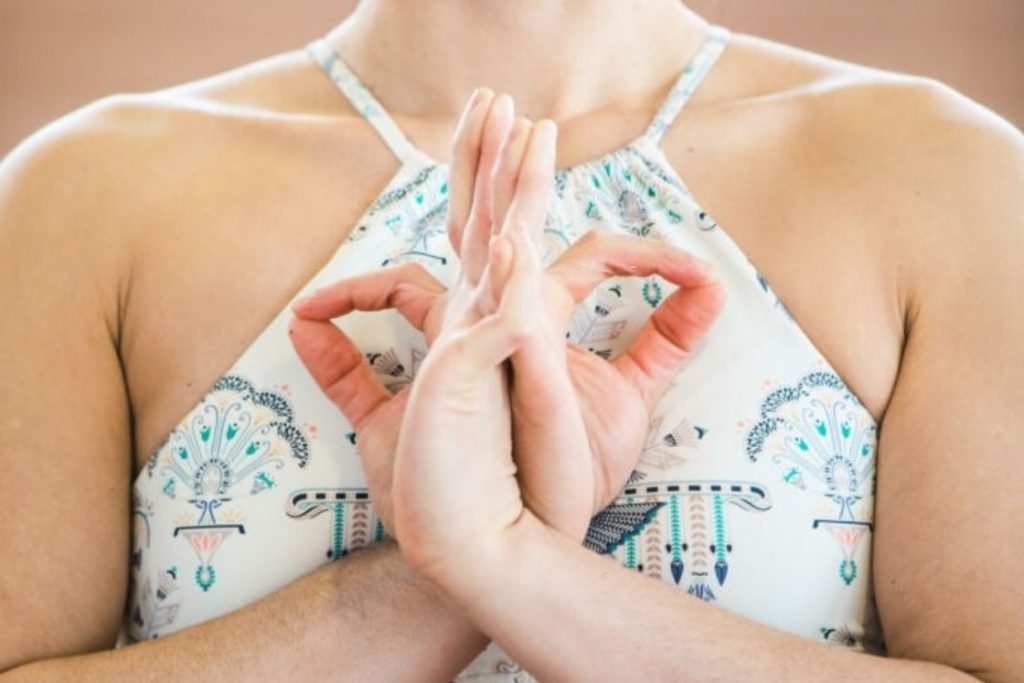
Abhaya Hridya Mudra comprises the quality of Abhaya (fearlessness) and Hridya (heart) Mudra. Combining the quality of these two mudras, this mudra removes the fear from the heart and fills it with love & compassion. This mudra is recommended for those who are often afraid of taking new decisions.
To do Abhaya Hridya Mudra,
- Bring your hands in Namaste
- Cross your right wrist over the left wrist and bring the backs of your hands together.
- Now cross your index, middle and little finger one by one with the respective finger of the opposite hand.
- Touch the tip of the ring finger with the tip of the thumb and form a circle.
- Place your hands at chest level. Maintain the grip of fingers and meditate on breath entering – existing from the lungs.
Benefits of Abhaya Hridya Mudra
- Cultivates strength to follow your heart and let go fear
- Makes easy to practice Loving-kindness meditation aka “metta” meditation
3. Vyana Mudra: Mudra of Lowering High BP
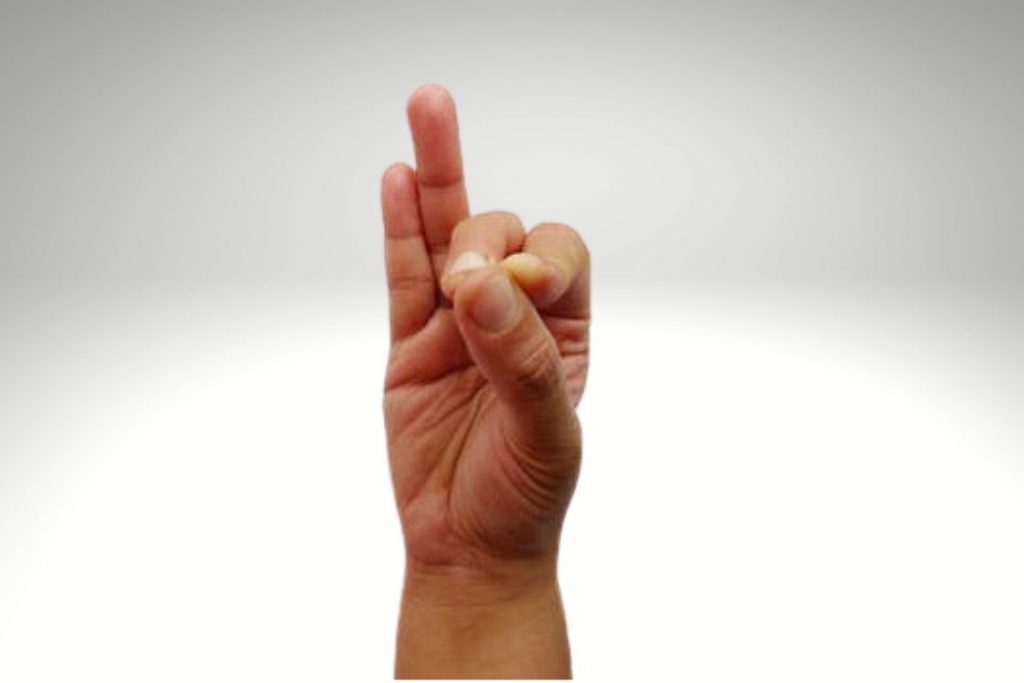
Vyana Mudra is responsible for Vyana Vayu – the energy of blood circulation in the body. In the case of high blood pressure, extra strain of blood vessels pressurizes the heart to do overwork.
Vyana mudra eases the pumping function of the heart by regulating Vyana Vayu and hence reduces the chance of heart attack.
To do Vyana Mudra,
- Sit comfortably in lotus pose
- Bring both your hands on the sides of the chest, fingers extended
- Touch the tip of the middle and index finger to the tip of the thumb. Keep the other two fingers straighten.
- Close your eyes to increase the focus on breathing. Maintain hand posture throughout the practice.
Benefits of Vyana Mudra
- Placement of fingers in this mudra maintains blood pressure
- Overcomes the dilemma of oversleeping and drowsiness
- It prevents excessive thrist and urination related problems
- Better circulation through this mudra makes better purification of Nadis – conduits of subtle energy
4. Ganesha Mudra: Mudra of Strengthening Heart Muscles
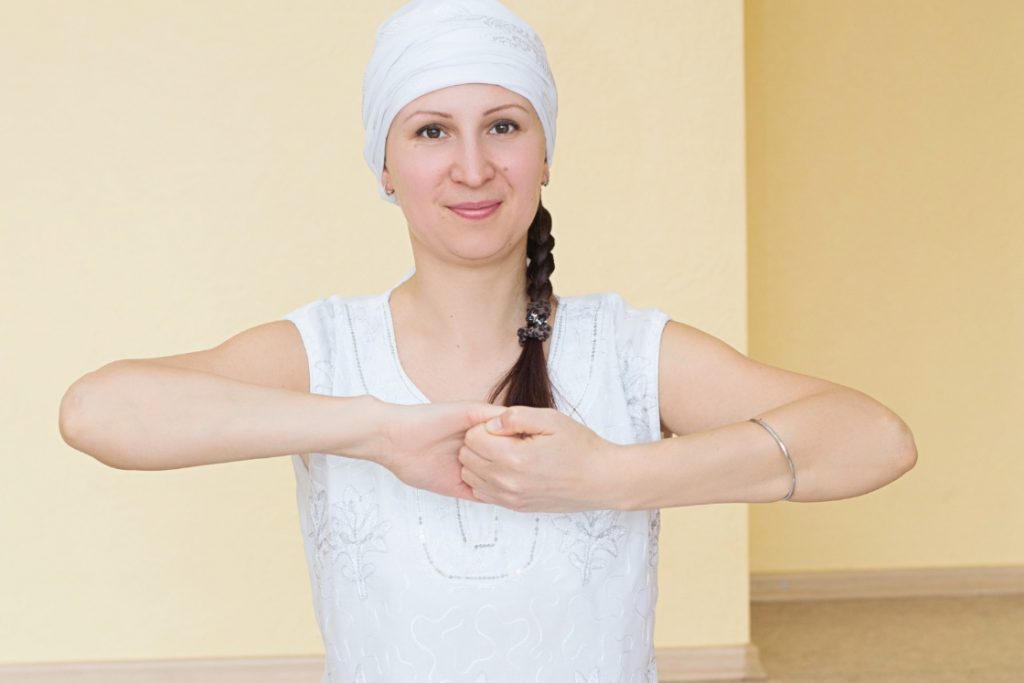
Ganesha Mudra is a hand gesture named after the Hindu god Ganesha. He’s also known as ‘obstacles remover god’. Taking this quality of Ganesha, this mudra removes the blockages of circulatory as well as respiratory pathways. Also, this mudra stimulates Prana towards the heart, which strengthens the heart muscles and maintains the heart cycle.
To do Ganesha Mudra,
- Sit on the floor in a cross-legged posture or simply sit straight on a chair
- Bring your both hand to the chest.
- Grasp both hands in such a way that:
- The back of the left hand facing the chest and palm facing forward.
- Similarly, back of the right hand facing forward and palm to the chest side.
- Hold both hands firmly and pull them away from each other.
5. Padma Mudra: Mudra to Open Heart Spiritually
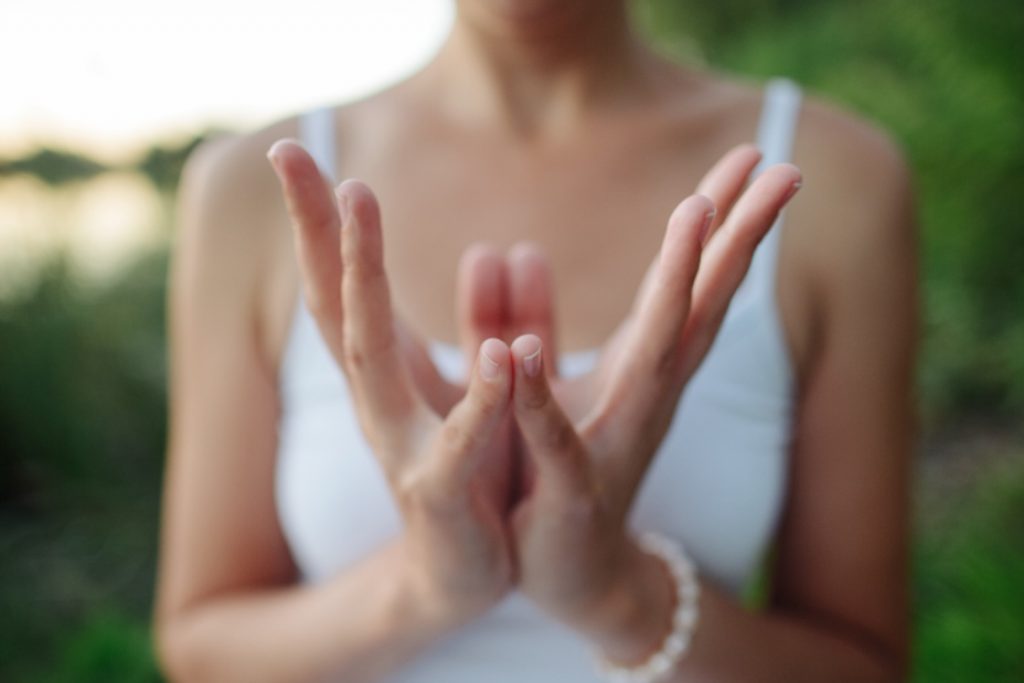
Padma Mudra symbolizes the lotus in appearance and characteristics. Just like a blossom lotus flower, this mudra opens the heart of a seeker leading on the path of spiritual enlightenment. Moreover, like the lotus flower blooms defeating the mud, it clears the negativity, and knots of ignorance aspect that proved unhealthy to heart.
To do Padma Mudra,
- Sit comfortably
- Bring your hand near to the chest in Anjali mudra
- Open fingers in the manner of a blossoming flower, except little and index finger – keep it in touch sidewise.
- Breathe slowly and focus on rhythmic breathing.
- With the inhalation, visualize the picture of blossoming lotus flower. With the exhalation, visualize petal of the lotus flower closing slowly.
Benefits of Padma Mudra
- It gives a sense of relaxation in the heart.
- Enhances heart health by promoting happiness and positivity.
- It relieves the stress and anxiety by lowering the secretion of cortisol hormone
- This mudra also reduces the symptoms of root causes which born out heart diseases. Like blood cholesterol, blood pressure, and blood sugar level.





These are the beneficial mudras which strengthen the functioning level of the heart and diminish the cholesterol level. Should be practiced 50 minutes a day with a break of 15 minutes each